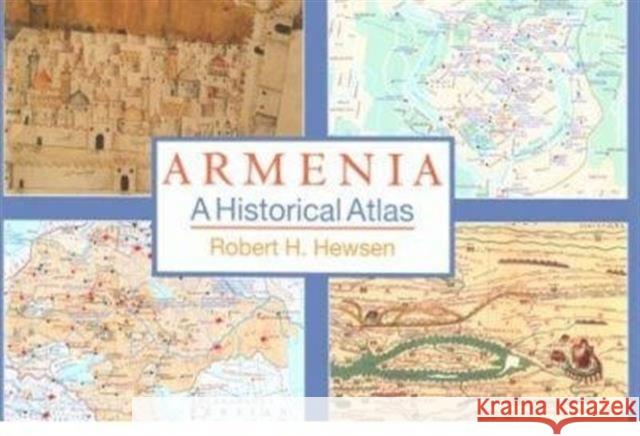Armenia: A Historical Atlas » książka
Armenia: A Historical Atlas
ISBN-13: 9780226332284 / Angielski / Twarda / 2000 / 342 str.
From its conversion to Christianity to the Genocide during World War I, from the Soviet occupation to its recent independence, Armenia has seen a long and often turbulent history. In the magnificent Armenia: A Historical Atlas, Robert H. Hewsen traces Armenia's rich past from ancient times to the present day through more than two hundred full-color maps packed with information about physical geography, demography, and sociopolitical, religious, cultural, and linguistic history.
Hewsen has divided the maps into five sections, each of which begins with a chronology of important dates and a historical introduction to the period. Specialized maps include Ptolemy's second-century map of Armenia, as well as maps of Roman, Cilician, Ottoman, tsarist, and Soviet Armenia. Other maps show the Persian khanate of Erevan, the Caucasian campaigns of World War I, the Armenian Genocide, the Armenian monuments in Turkey and Transcaucasia, the worldwide diaspora, ground plans of selected cities, and plans of the great monastery of Echmiadzin in 1660, 1890, and 1990. The atlas concludes with maps portraying the Karabagh war and the new Armenian Republic, and an extensive bibliography compiles references to the vast historical, ethnological, and travel literature on the region.
The first comprehensive and authoritative atlas of any of the former Soviet republics, this book does not treat Armenia in isolation, but instead sets it within the context of Caucasia as a whole, providing detailed information on neighboring regions such as Georgia and Azerbaijan. Armenia: A Historical Atlas will be an essential reference and an important teaching tool for generations to come.











